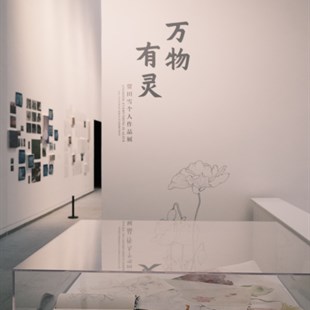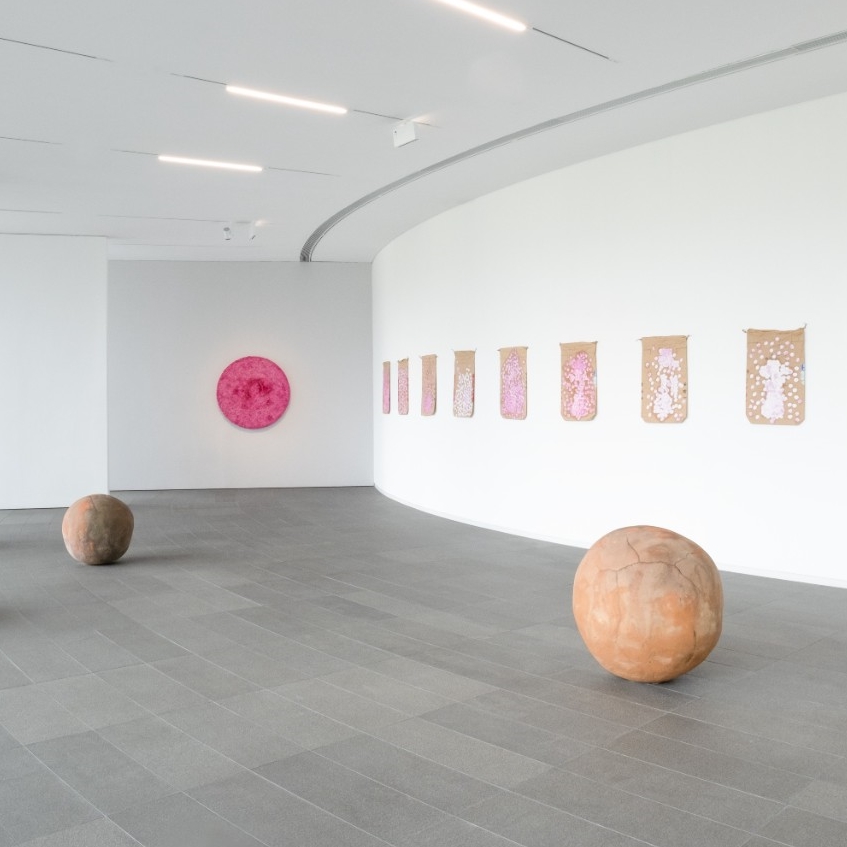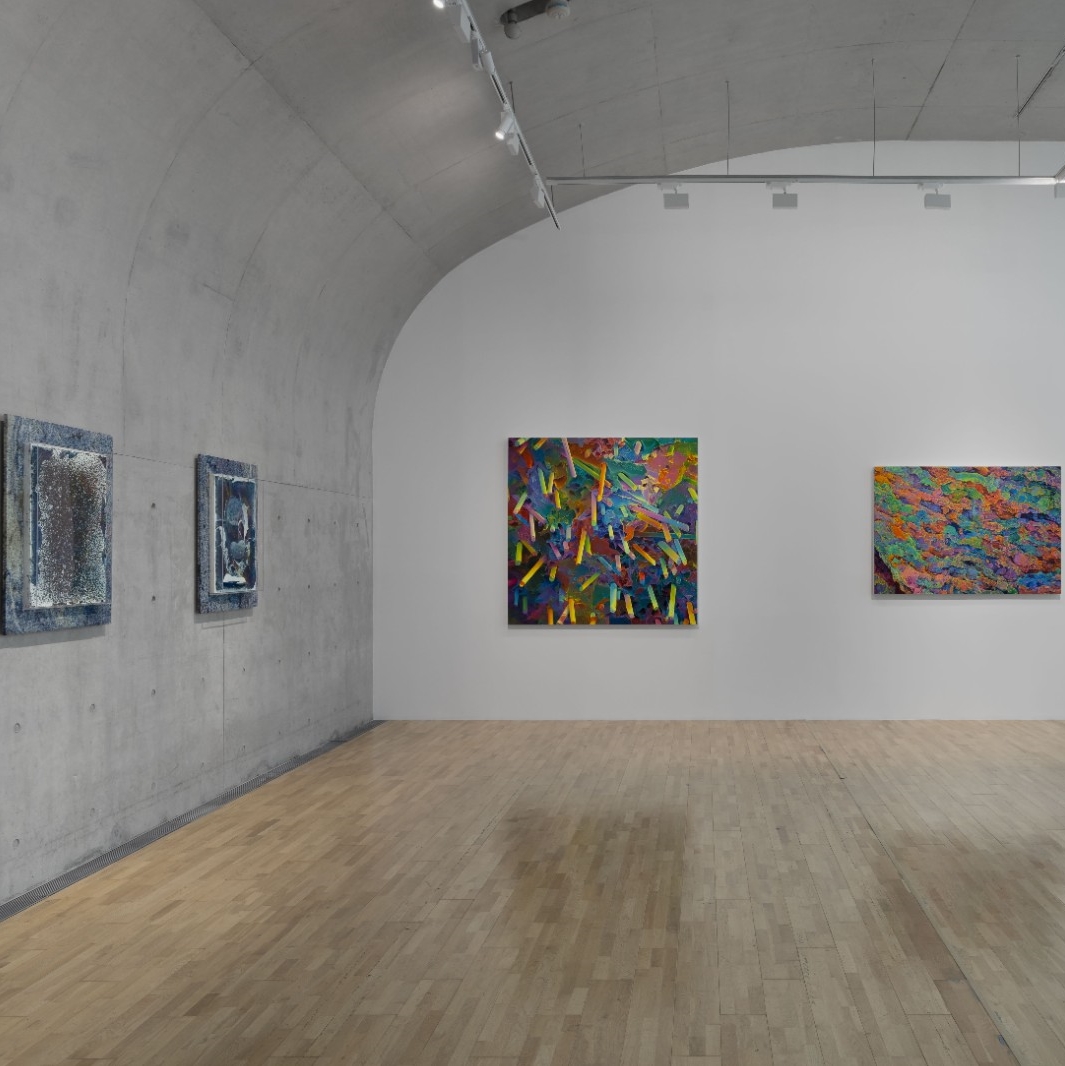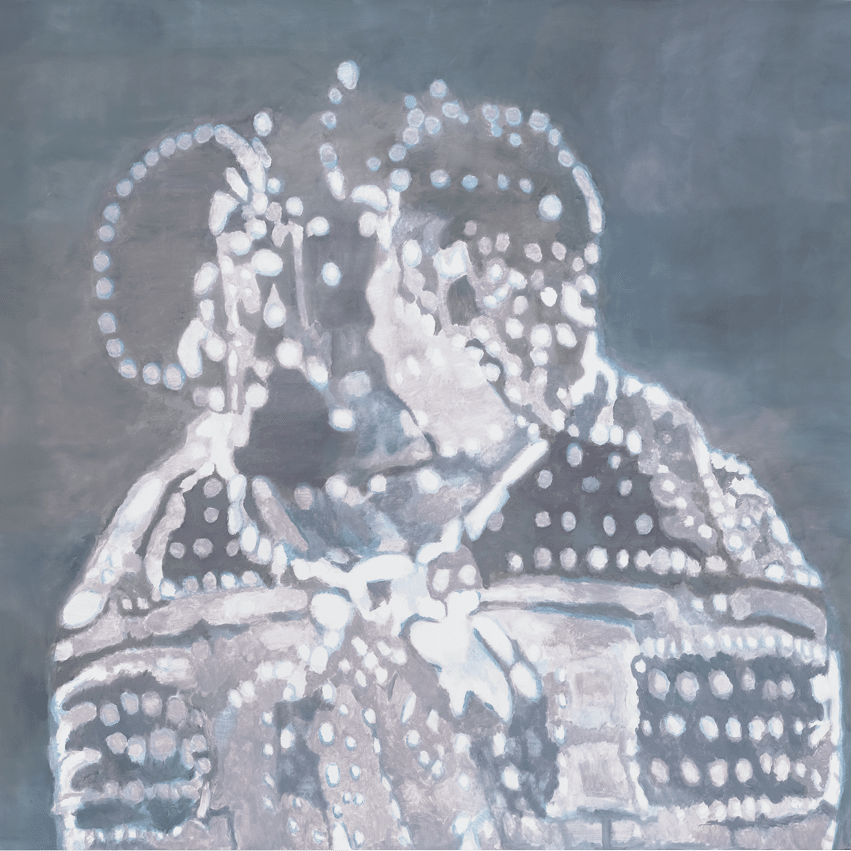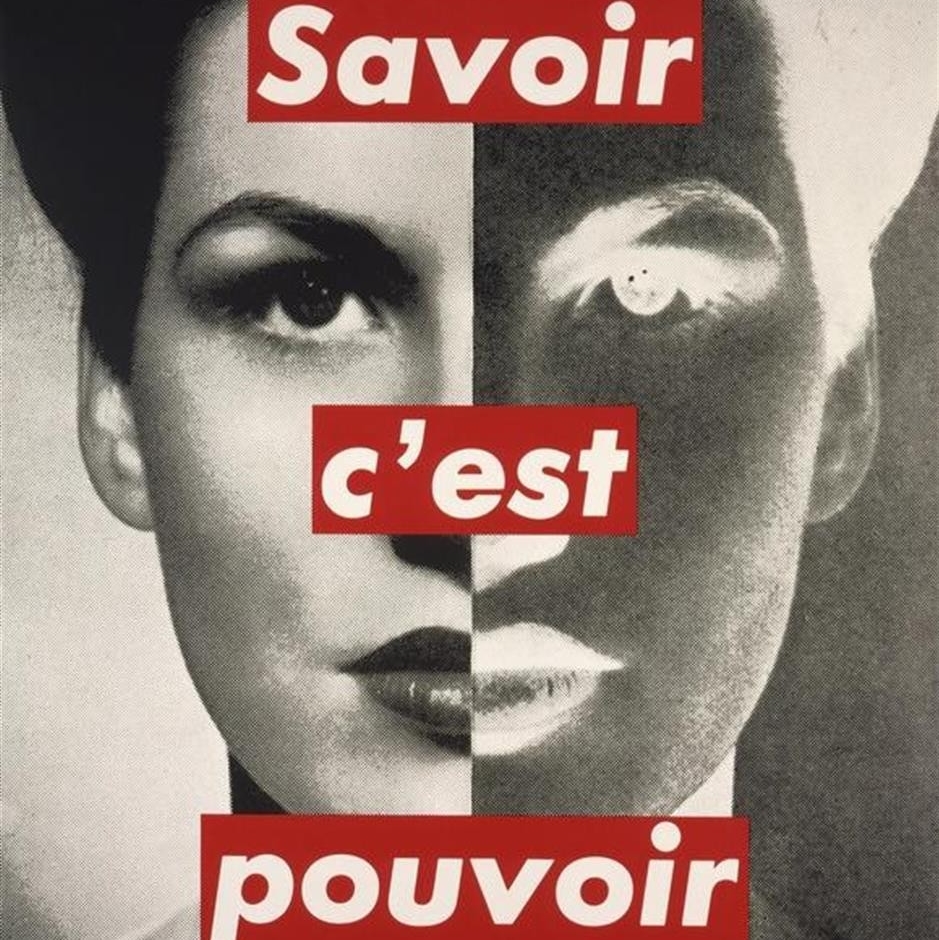Where does your heart belong?
Berlin, 2020
Most of the questions constructed for the daily questions project function within the Romantic tradition. They might appear at first to simply have very personal implications, however, their Romantic character, particularly of the question ‘Where does your heart belong?’, is political in a rather broad spectrum of the term, and to understand it, one must look at implications of classical Romanticism in the continental European tradition. The Romantic is one who struggles for freedom of many sorts and it is this struggle that makes his/her existence dramatic.
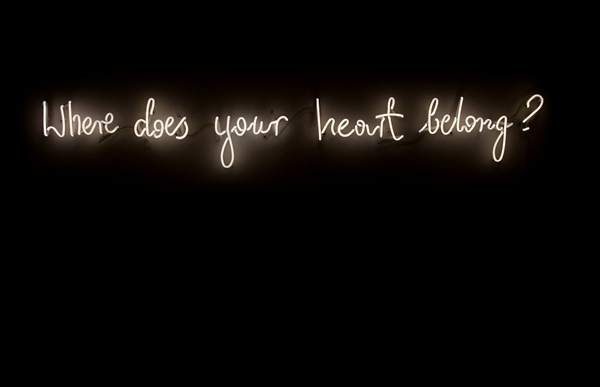
XIX century Europe was a time of great migrations and struggles for freedom of nations dominated by continental empires. That was predominantly the case in Eastern and Southern Europe. In such a context, an individual struggled to attain freedom on many levels (to speak the native language, practice the native culture and express his/her views). Some or none of these were at times possible due to the power structures he/she found him/herself in. Elsewhere, individuals had to move from the ‘free’ country life into factories as the first industrial revolution took place. Thus, the struggle or melancholy in the Romantic tradition often had socio-political backgrounds, particularly in artistic and literary products of minority cultures of continental empires.
This Romantic context of an individual’s freedom is perhaps valid now more than ever in modern history. The power structures that classical liberals like Wilhelm von Humboldt would warn us about have shifted from the state towards the private sector in the contemporary capitalist landscape. At the same time, the private power’s means of control are now much more sophisticated. In fact, their primary characteristic is that an individual entangled within might not even realise his or her freedom is at stake. Perhaps it is not the physical freedom, but the capacity of our free will, which is what I believe the most intrinsic quality of man, that might be undermined.

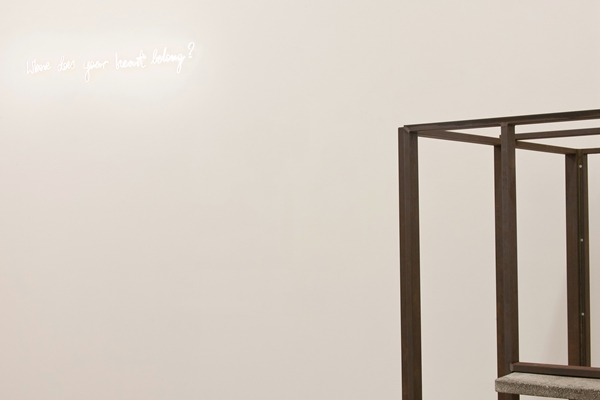
Installation View of Where does your heart belong?
The question of belonging is also a broad one, for it is always positioned within the relationship between social constructs, such as the country or the family, and the will. That said, belonging in the same sense promises safety as well as any other social constructs to which other questions from the project refer do (‘How far can you see?’, ‘What do you desire?’). Hence, questioning social constructs has a deconstructing quality. Deconstruction can lead to a process of understanding, and understanding is a means of attaining freedom in the mentioned contemporary political landscape.
Another construct that the question of belonging could lead us to is that of history. Where do we consider ourselves to be in the context of history, how do we see the past and how do we envision the future; these questions are particularly important for man who lives in the culture shaped by modernity.
The most recent events make me question the actual meaning of freedom. As the global pandemic brought a slight deceleration to our insatiable consumption of resources (for instance, through the simple fact of travelling significantly less), we might be able to peek into the neoliberal idea of freedom. On one hand, there is the freedom as an inherent quality strived by man (freedom to think, to express, to create, etc.), and on the other hand, there is the constructed freedom of ‘free’ consumption (for example, corporations would frame the consumption of fashion as a way of free expression and the lifestyle of travelling globally as an ultimate means of attaining freedom). These lifestyle modes are yet another construct that presents individual with a sense of security by belonging to a particular social group which represents this particular lifestyle.
Yet, when thinking of freedom and belonging in such a context, one should not forget, without somewhere to belong in the first place, one could not even consider freedom. It is not coincidental that XIX century Romanticism plays a significant role in understanding the questions posed. After all, it is the first industrial revolution which marks the beginning of the acceleration of the destruction of our planet. The freedom to consume could not be truly considered freedom, as it would ultimately lead to destruction. And a destroyed world has very little space for freedom.
Asking oneself where one’s heart belongs demands the individual to decipher whichever difficult structures of power he/she finds him/herself in, significance of our past and envision the future one wants to find oneself in.
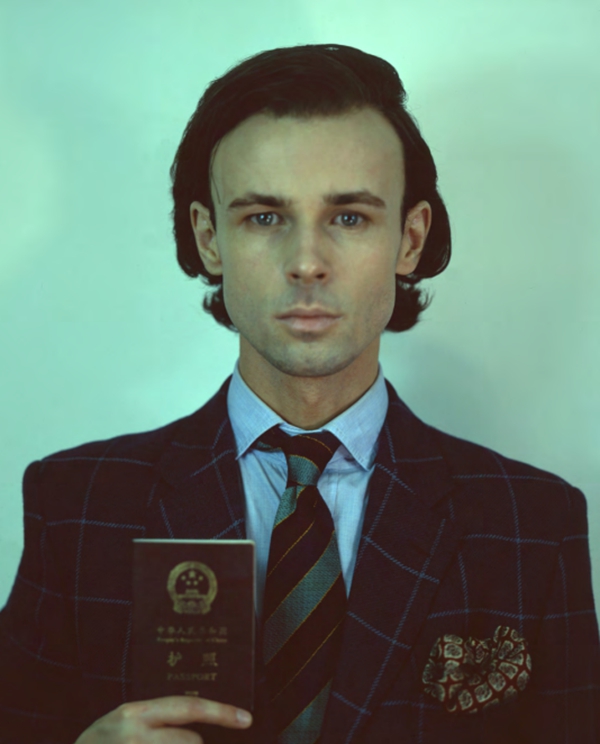
Michal Martychowiec (born in 1987) creates conceptual series of photographs, films, drawings, neons, objects, mixed media installations and environments. He is a visiting lecturer at China Academy of Art in Hangzhou and visiting scholar at Russian Institute of Art History in Saint Petersburg. He lives and works in Berlin.
Martychowiec’s oeuvre consists of a mixed-media practice designed in larger series. It is thus always developed hermeneutically around an expanded topic. A new field of his invention is also recreation of avatars and other personas.
Through this practice, characterised by the diversity of the media used, Martychowiec aims to explore the condition and the possibilities of contemporary human existence. His thinking revolves around his tory, invention and autopoiesis of historical narratives and thus also exploration and occasionally comical recomposition of cultural symbols and archetypes.
Furthermore, Martychowiec merges artistic and curatorial practices through a twofold arrangement of his oeuvre. At first, he develops projects as individual narratives within a certain field of inquiry. At the same time, these projects inform one another and their elements are reenacted and incorporated, through a curatorial activity, into later works, where they acquire symbolic qualities.
Martychowiec’s inventions are based primarily on Occidental and Oriental philosophy, anthropology, art and cultural history, universal historical reflections, the history of religion, literature, archeology and, of course, our contemporary culture and communication analysis.
Image and Text Courtesy of the Artist.
Edited by Sue and Emily/CAFA ART INFO


